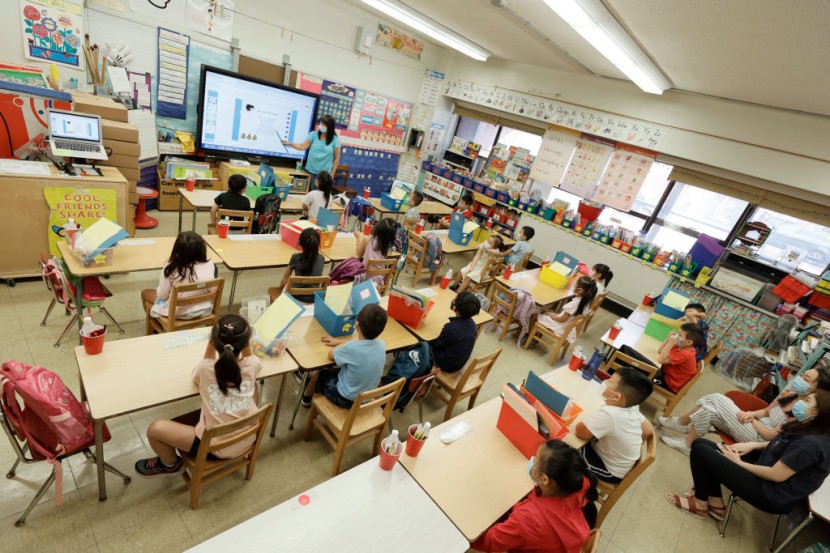
Pfizer's COVID-19 vaccine for children aged 5 to 11 was authorized by an FDA advisory panel on Tuesday, paving the way for vaccinations to begin as early as next week.
The approval was the first regulatory obstacle for the age group's vaccination. The COVID-19 vaccine must now receive formal clearance from the US Food and Drug Administration; and if the agency approves it as expected, it will be considered by a CDC advisory council on November 2.
That panel is likely to accept it as well and to send its recommendation to Dr. Rochelle Walensky, the agency's chief, for final approval. Dr. Anthony Fauci said on Sunday that if the vaccine is authorized, it may be available for children in the first two weeks of November.
COVID-19 vaccine for children needs another approval
Per NY Post, Walensky also stated that the Biden administration is willing to roll out the vaccination to the age range immediately. According to data presented to the FDA advisory council Tuesday, children aged 5 to 11 account for around 9% of all reported coronavirus infections in the country.
While young children have been shown to be less likely than older individuals to become critically ill from the deadly virus, many kids remain in high-transmission settings such as schools, where they can take up and spread COVID-19 to others, according to experts.
If the FDA approves the child doses, there's one more step to take: The Centers for Disease Control and Prevention will have to determine whether or not to suggest the vaccinations, as well as which children should receive them, next week.
Pfizer and its partner BioNTech's full-strength vaccines are currently recommended for people aged 12 and above, but doctors and many parents are asking for protection for younger children. Families are dissatisfied with school quarantines and having to say no to sleepovers and other childhood customs to keep the virus at bay because of the extra-contagious Delta variant.
States are preparing to send out doses for children's arms as soon as the government gets the go signal - in special orange-capped vials to differentiate them from adult vaccination. So far, more than 25,000 doctors and other primary care providers have agreed to deliver the COVID-19 vaccines, AOL reported.
While there is less COVID-19 in children aged 5 to 11, they have nonetheless experienced significant illness, with over 8,300 hospitalizations reported, approximately a third of which required intensive care, and over 100 fatalities. Even though the children got only a third of the amount provided to teenagers and adults, a study of primary pupils indicated that the Pfizer injections are nearly 91 percent effective at avoiding symptomatic illness.
Pfizer seeks to lower COVID-19 dose for young children
Pfizer and BioNTech are seeking approval for a 10-microgram dosage of the vaccine in young children, as opposed to the 30-microgram dose for individuals aged 12 and up. After being certified for individuals aged 16 and older in December, the shot has been permitted for kids 12-15 since May.
In a clinical trial of children aged 5 to 11, the firms claimed their vaccination had a 90.7 percent efficiency against the coronavirus, as per CGTN. The advisers were particularly concerned about the rate of myocarditis, a kind of cardiac inflammation related to both the Pfizer-BioNTech and Moderna vaccines, particularly in young men.
In most scenarios analyzed, the hospitalizations prevented for COVID-19 would outweigh those prevented for myocarditis if the number of myocarditis cases in the younger age group is equivalent to that in 12- to 15-year-olds, FDA staff reviewers stated in materials prepared ahead of Tuesday's meeting.
Due to the risk of myocarditis, several panel members proposed that the vaccination be administered to a smaller group of children, such as those with conditions that make them more likely to be hospitalized.
Related Article: Pfizer Vaccine Booster Shows 95.6% Efficacy in Phase 3 Trials as Global Rollout of Additional Shots Continue
@YouTube








